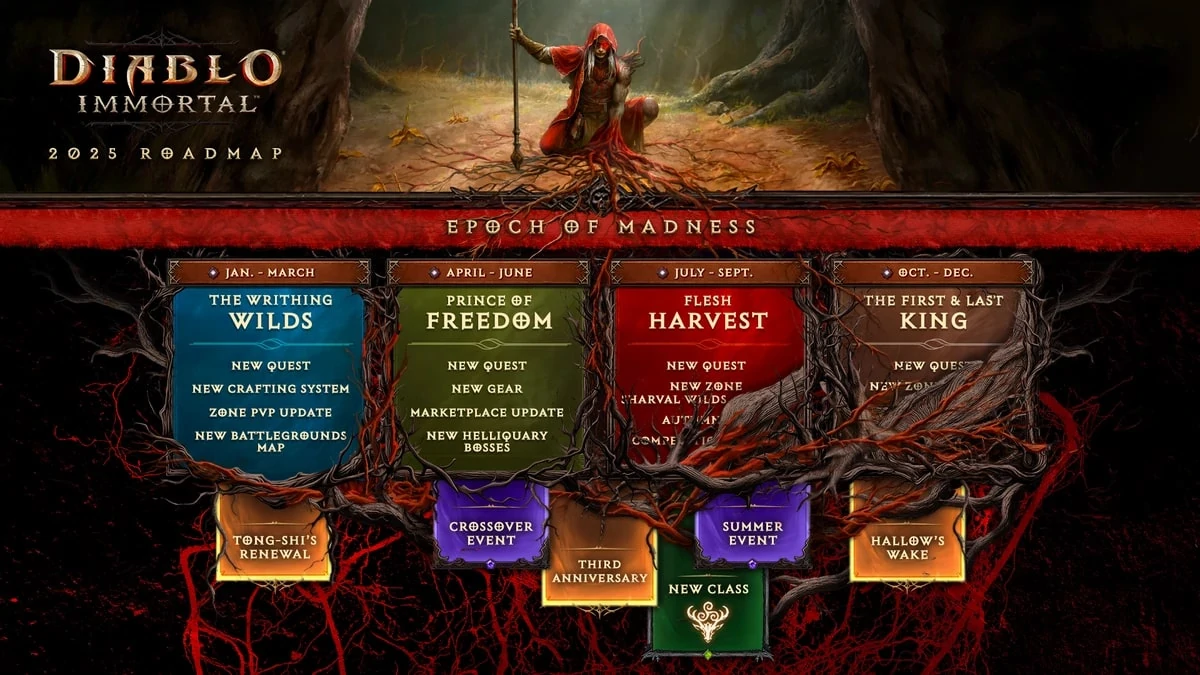The vibrant world of video game development, often perceived as a dream career brimming with creativity, frequently masks a stark reality of intense pressure, long hours, and, increasingly, job insecurity. In a significant move reverberating across the industry, over 450 developers behind Blizzard Entertainment`s critically acclaimed Diablo franchise have voted to unionize. This landmark decision, spearheaded by the Communications Workers of America (CWA), marks a pivotal moment in the ongoing quest for improved working conditions and greater stability within the video game sector.
The Call for Collective Action
The successful unionization effort sees these developers, spanning roles from designers and engineers to artists and support staff, now represented by CWA Local 9510 in Irvine, California; Local 1118 in Albany, New York; and Local 6215 in Austin, Texas. Crucially, Microsoft, the parent company of Activision Blizzard, has officially recognized the newly formed union. This recognition is not merely a formality; it signifies a potential shift in corporate-labor relations within a sector traditionally resistant to organized labor.
This initiative, however, is not an isolated tremor but part of a growing seismic activity within Blizzard itself. Earlier this month, the studio`s Story and Franchise Development team also successfully unionized, signaling a clear and widespread desire among employees for collective bargaining and protection.
Behind the Scenes: Fear, Instability, and the Pursuit of Dignity
What compels hundreds of talented individuals in a high-profile industry to organize? The answer, according to developers themselves, is a potent mix of fear and a yearning for stability. Mass layoffs have become an unsettlingly frequent occurrence across the tech and entertainment landscape, and the video game industry is no exception. This creates an environment where dedication and hard work often feel insufficient to secure one`s livelihood.
“With every subsequent round of mass layoffs, I`ve witnessed the dread in my coworkers grow stronger because it feels like no amount of hard work is enough to protect us,” shared Kelly Yeo, a Diablo producer and organizing committee member. “This is just the first step for us joining a movement spreading across an industry that is tired of living in fear.”
The personal anecdotes paint a vivid picture of this pervasive anxiety. Ryan Littleton, a designer, recounted a chilling experience: “The day after the third round of mass layoffs, I walked into the office, and when I tried to open the door to the cafeteria, my badge was denied. For a moment, I wondered if getting breakfast was how I`d find out I was part of that round.” While his situation turned out to be a technical glitch, the underlying fear was very real. “None of us should have to live with that constant worry that we might be let go at the drop of a hat,” Littleton emphasized, highlighting the mental toll of such precarity.
Senior software engineer Nav Bhatti framed the unionization as a vital response to these long-standing industry challenges, noting that constant stress forces individuals into a “fight-or-flight mode.” The union, in this context, empowers them to “stand our ground in the industry,” shifting the dynamic from individual vulnerability to collective strength.
A Broader Movement: The Tide is Turning
The unionization of Diablo developers is not merely a story about one studio or one game; it is emblematic of a much larger narrative unfolding across the American labor landscape, particularly within the entertainment sector. Jason Justice, president of CWA Local 9510, underscored this broader context:
“What`s happening here is part of a much larger story about turning the tide in an industry that has long overlooked its labor. Entertainment workers across film, television, music, and now video games are standing together to have a seat at the table.”
California, a hub for both technology and entertainment, has been at the forefront of this burgeoning labor movement. The success of these union drives signals a growing recognition among workers that collective bargaining is a powerful tool to address issues such as fair wages, reasonable hours, job security, and a voice in corporate decisions that directly impact their lives.
What Lies Ahead: Implications for Blizzard, Microsoft, and the Industry
The unionization of a significant segment of Blizzard`s workforce presents both challenges and opportunities. For developers, it promises a formal mechanism for addressing grievances, negotiating contracts, and advocating for better working conditions, potentially fostering a more equitable and stable environment for creative production. For Blizzard and Microsoft, it means adapting to a new paradigm where employee voices carry formal weight, requiring more transparent communication and collaborative decision-making processes.
In an industry often lauded for its innovation and global reach, the human element—the dedication and talent of its workforce—is paramount. This recent unionization effort serves as a potent reminder that even in the most cutting-edge fields, the fundamental need for security and dignity in labor remains. As the pixels on our screens create worlds of wonder, the hands that craft them are now firmly asserting their right to shape their own professional reality.

